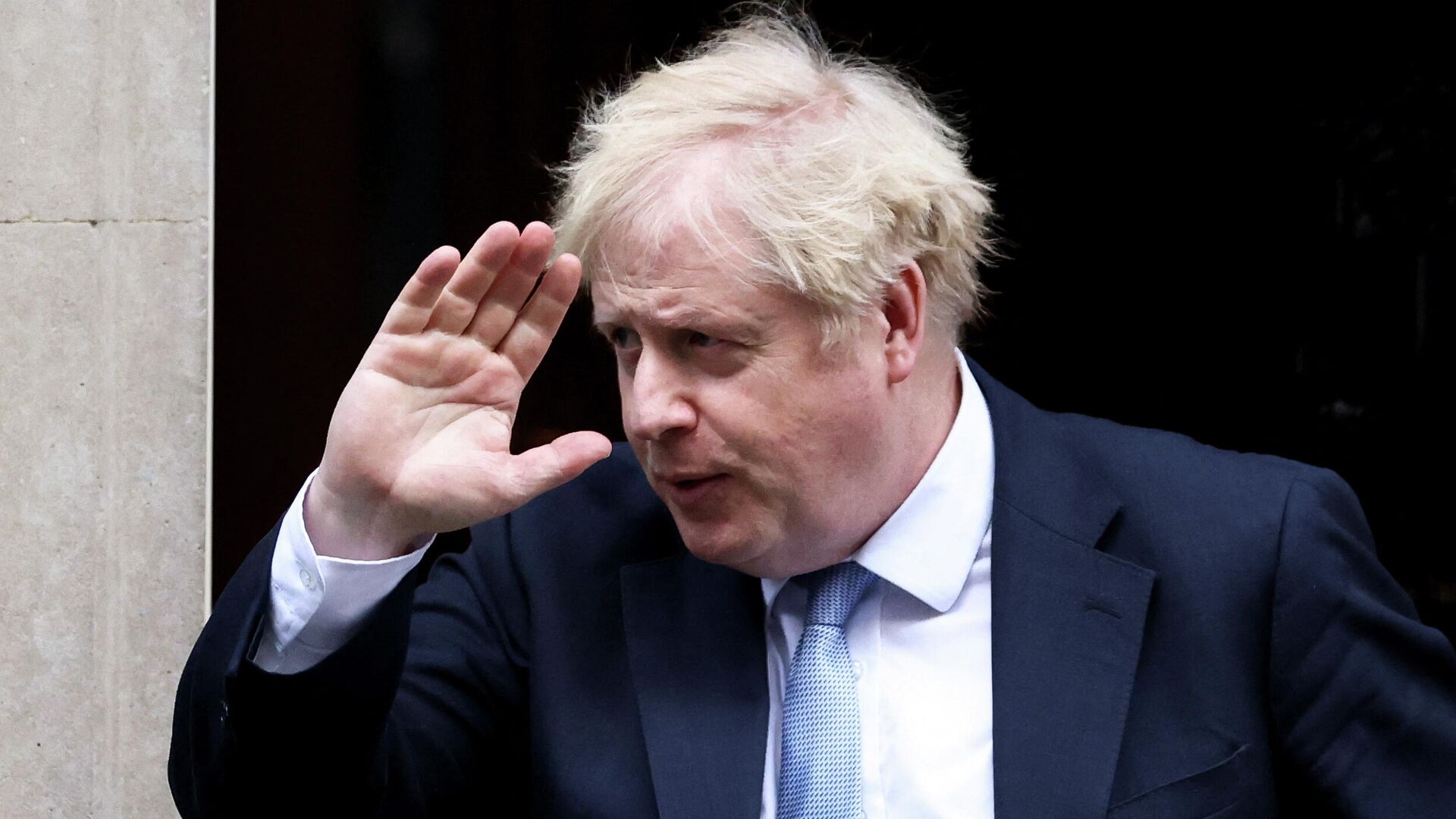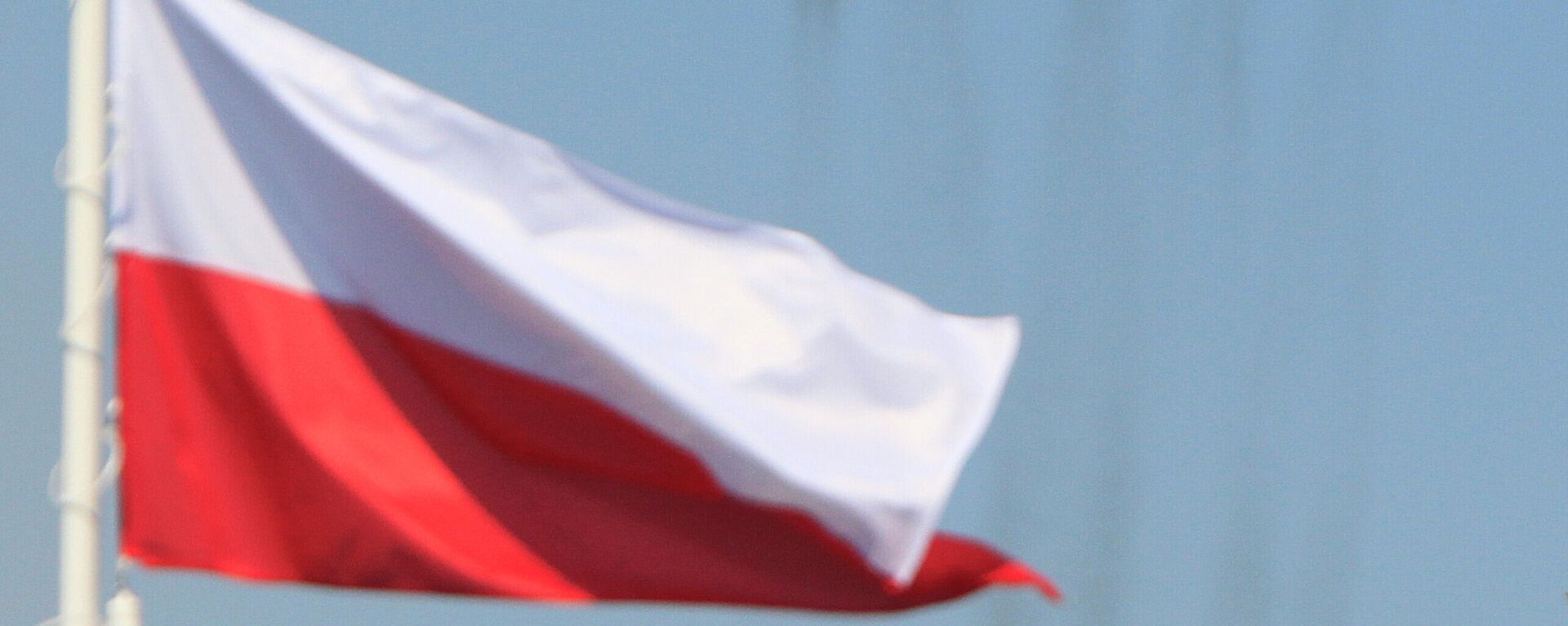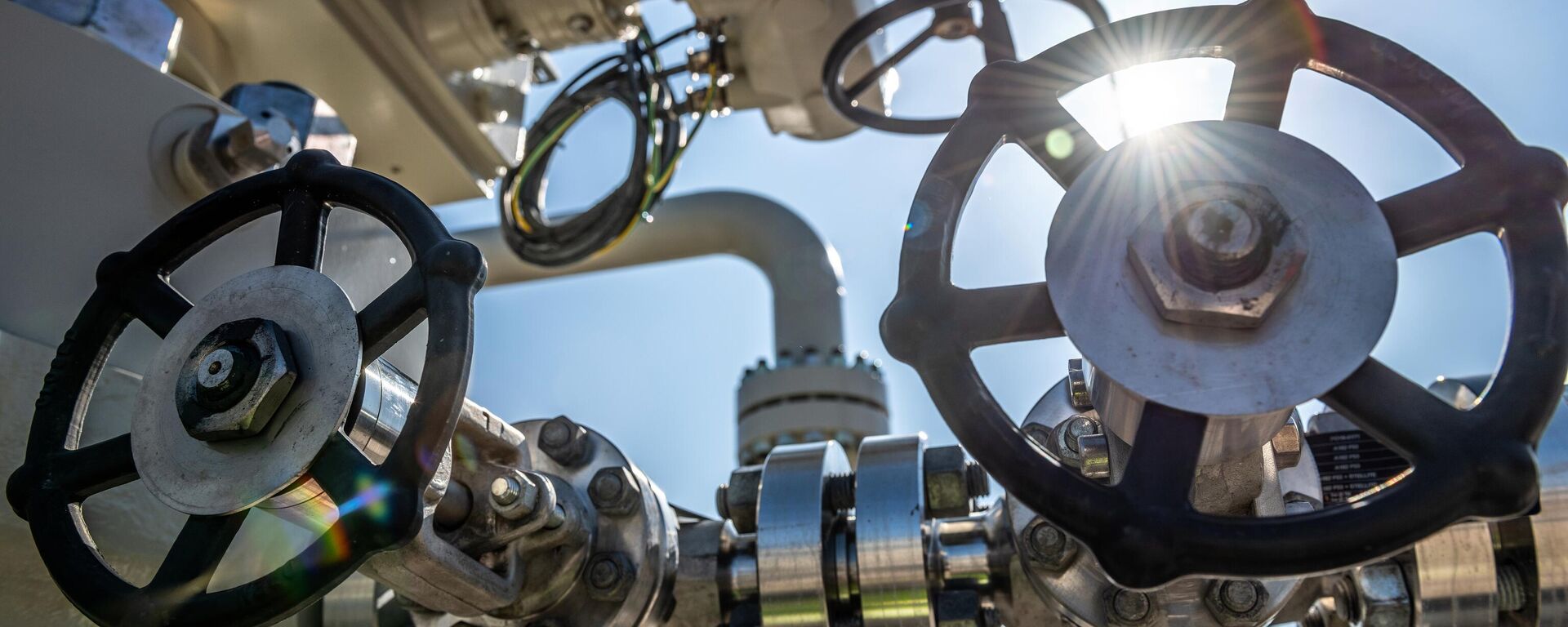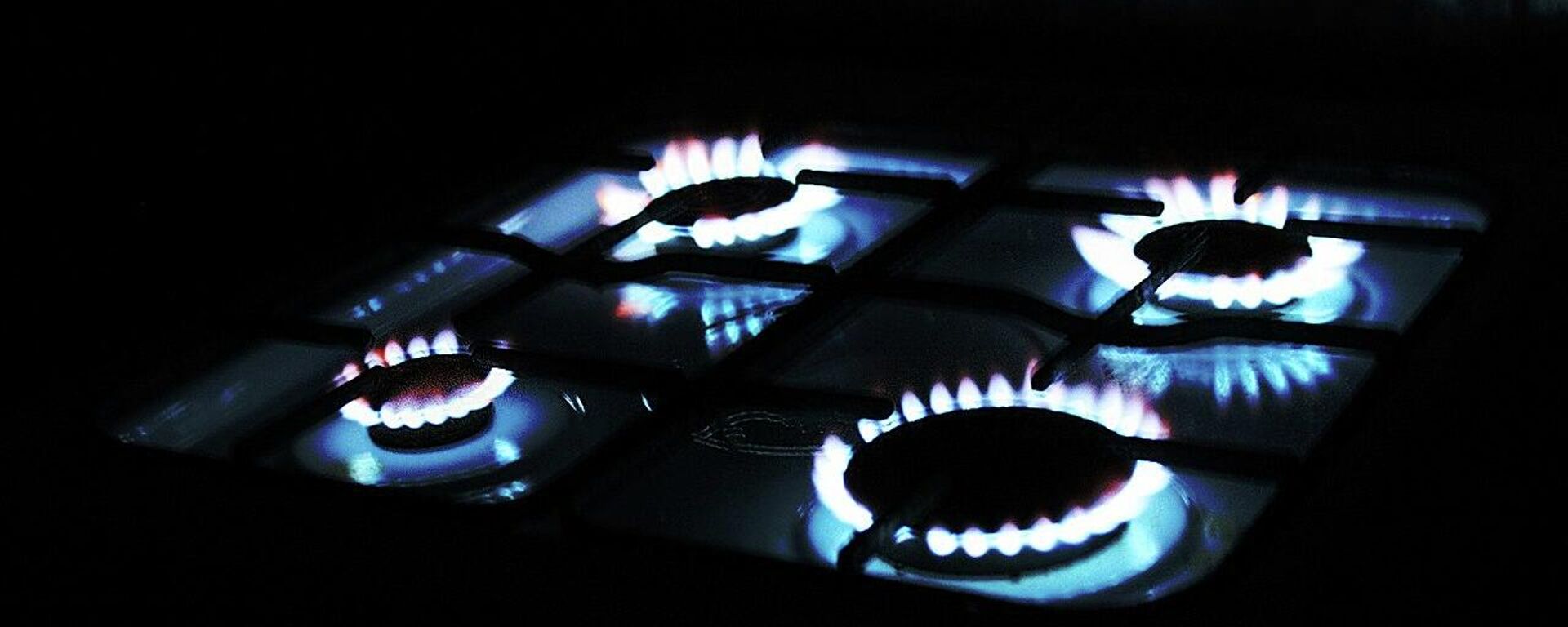BoJo Urged by MPs to Reverse Fracking Ban in the Name of Forging a 'Path to Energy Independence'
06:06 GMT 06.03.2022 (Updated: 15:18 GMT 28.05.2023)

© REUTERS / TOM NICHOLSON
Subscribe
In early February, in a joint letter to Boris Johnson, MPs called on the PM to abandon the “unconservative” fracking ban, claiming it would allow the UK to combat the “cost of living crisis”, while reducing reliance on imported gas and stabilising energy prices.
Boris Johnson is being urged by Tory MPs to abandon a plan to seal two of the country's only remaining productive shale gas wells by 15 March, as they argue that it would shut down a viable way of combating the cost-of-living crisis, reported The Telegraph.
The 34 MPs and five peers belonging to the Tory Net Zero Security Group have penned a letter to the UK Prime Minister, emphasising the urgency for Britain to embark on a "national mission" to secure its energy independence by drastically cutting reliance on foreign gas supplies.
“We urge you to pause and conduct a review of this decision. At a time of such geopolitical strife, we cannot refrain from actions that would improve the position of the UK and its allies. We have seen how a reliance on imported gas affects the responses of other countries during the initial stages of Russian aggression,” stated the MPs in their letter to Johnson, sent to Downing Street on Saturday night.
The missive was spearheaded by Craig Mackinlay and Steve Baker, the chairman and deputy chairman of the Conservative Net Zero Scrutiny Group (NZSG) – backbenchers who have been increasingly voicing their concerns about the costs of reaching net zero.
The letter, also signed by former Cabinet ministers Lord Lilley and Esther McVey, including a 2019-intake of parliamentarians, stated that Europe had developed an ‘addiction’ to Russian gas. The signatories argued that filling the afore-mentioned wells with cement would “send the wrong signal to our allies and to our enemies”, preventing the UK from following “this path to energy independence.”
Hydraulic fracturing, or fracking, is a technique designed to recover gas and oil from shale rock by drilling down into the earth, after which water, sand and chemicals are injected into the rock at high pressure. British ministers had introduced a moratorium on commercial fracking at the Lancashire wells in late November 2019.
Initially, the Oil and Gas Authority (OGA) ordered test drilling suspended due to earth tremors. An earthquake registering a magnitude of 2.9 was recorded near the site at Preston New Road in August 2019. Besides the earth tremor concerns, environmentalists argue that potentially carcinogenic chemicals may escape during drilling, contaminating groundwater around the site.
Now, England’s only two remaining viable wells are to be plugged with concrete, with energy firm Cuadrilla, the owner, slamming the decision as "ridiculous" amid rising gas prices.
"Shale gas from the North of England has the potential to meet the UK's energy needs for decades to come, yet ministers have chosen now, at the height of an energy crisis, to take us to this point," stated Cuadrilla.
The company’s chief executive Francis Egan was cited as saying it was “madness” to concrete over the gas wells. Furthermore, the limit of 0.5 on the Richter Scale for fracking activity was denounced as “ridiculous”, and likened to “sitting down in your armchair”.
NZSG’s Craig Mackinlay was cited by the Daily Mail as decrying the OGA order as “industrial vandalism”, claiming “a global energy crisis” is hardly the time for sealing the well.
Lee Anderson, the MP for Ashfield, also echoed the stance, saying that a ban on fracking was “total lunacy” in the light of Russia’s military operation launched on 24 February to demilitarize and ‘denazify’ Ukraine.
The operation, which also aims to protect the Donetsk and Lugansk People's Republics from genocide on the part of the Kiev authorities, has been decried by Western countries as an “invasion”, with sweeping sanctions targeting key Russian economic sectors.
Coming amid the European energy crisis, the restrictive measures, and with UK Foreign Secretary Liz Truss urging European counterparts in Brussels on Friday to stop energy imports from Russia, MPs urge that “at a time of increasing insecurity over fuel supplies, we should be using the huge shale gas resources right under our feet”.
‘Unconservative’ Fracking Ban
Earlier in February, in a joint letter to Boris Johnson, the former Cabinet Office minister David Frost joined 29 MPs to plea with the PM for a U-turn on the “unconservative” fracking ban. The letter stated that the move would “allow us to combat the cost of living crisis, level up, create jobs, opportunity and a renewed sense of community in the north, improve our energy security, reduce our reliance on imported gas, stabilise energy prices and achieve net zero without increasing the cost of living for already hard-pressed working families.”
Lord Frost had declared that reversing the ban would herald a “British energy renaissance.” However, at the time, Downing Street source was cited by the outlet as saying that the PM had “made clear it is not something we will be reversing.”
It was added that the controversial hydraulic fracturing method was banned because it had caused earthquakes and presented “unpredictable and unmanageable” risks to local communities.
In response to the current letter, a Government source was cited by the Daily Mail as dismissing the calls, saying:
“Fracking causes earthquakes, is hated by local communities, would take five to ten years to kick-start, and won't even lower the price. We need to get real: Lancashire isn't Texas, any shale gas we do find won't be enough to lower the European price.”
Echoing this, UK Business Secretary Kwasi Kwarteng accused MPs calling for the return of fracking of “misunderstand the situation we find ourselves in.”
“No amount of shale gas from hundreds of wells dotted across rural England would be enough to lower the European price any time soon. And... private companies are not going to sell the shale gas they produce to UK consumers below the market price,” wrote Kwarteng in the outlet.
‘Miserable Milestone’
The calls to U-turn on the fracking ban come against the backdrop of soaring cost of oil in recent weeks, while the average prices of ordinary unleaded petrol around the UK surged above a dramatic milestone of 154p a litre last week.
According to the RAC, the price of petrol rose by 5p since last weekend, and on 3 March jumped by more than 1.3p from the previous day. The price of diesel is currently at around 158p a litre. And drivers who fill up at motorway service stations are paying an average of 170p a litre. By contrast, a year ago, despite the coronavirus pandemic, petrol cost 123.7p a litre (£5.62 a gallon), with diesel at 126.83p.
“Many won’t be able to comprehend petrol has hit the miserable milestone of £7 a gallon. For many older drivers it was a barrier they never thought would be breached. The Chancellor has to do something. The VAT element – on the current rate of 20 percent – is more than 25p. The RAC is calling on the Treasury to look at an emergency temporary cut in the VAT rate levied on fuel to ease some of the pain drivers are facing and to better protect them from upcoming rises. Cutting the rate to 15 percent would cut it by 6p a litre – leaving the Government to still take 19p a litre at current prices,” Simon Williams, of the RAC, was cited as saying.
Williams added that the $10 jump in the oil price to $113 a barrel last week “was the reason for the rise in prices.” UK Chancellor Rishi Sunak is also being urged to act, as petrol price rises are predicted to have a knock-on effect on inflation, currently at 5.5 percent.




